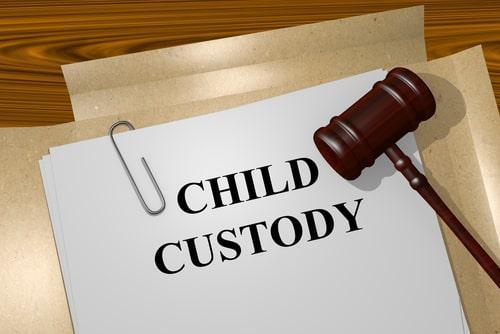Recent Blog Posts
Is Divorce Mediation Right for Me?
 If you are getting a divorce from your spouse, it is important to learn about all of your options. An alternative resolution option many divorcing couples find beneficial is mediation. The mediation process involves working with a trained mediator to negotiate various issues in your divorce, from child custody to division of assets. Mediation may help you and your spouse reach an agreement and avoid the often stressful process of divorce litigation. However, mediation is not right for everyone.
If you are getting a divorce from your spouse, it is important to learn about all of your options. An alternative resolution option many divorcing couples find beneficial is mediation. The mediation process involves working with a trained mediator to negotiate various issues in your divorce, from child custody to division of assets. Mediation may help you and your spouse reach an agreement and avoid the often stressful process of divorce litigation. However, mediation is not right for everyone.
Advantages of Mediation
During mediation sessions, you and your spouse will sit down in a quiet room and try to come to an agreement on how your divorce matters will be dealt with. Rather than providing legal advice, a mediator will facilitate the discussion and help you stay focused on the issues at hand. Here are several benefits of mediation:
What Happens if Divorcing Parents Cannot Agree on Child Custody?
 If you and your divorcing spouse have children together, you are required to create a parenting plan that details how the two of you will continue to care for them after you are separated. Some of the information needed in this plan includes transportation arrangements, a parenting time schedule, and an allocation of parental responsibilites. However, matters can get complicated if you and the other parent cannot agree on a plan.
If you and your divorcing spouse have children together, you are required to create a parenting plan that details how the two of you will continue to care for them after you are separated. Some of the information needed in this plan includes transportation arrangements, a parenting time schedule, and an allocation of parental responsibilites. However, matters can get complicated if you and the other parent cannot agree on a plan.
What Will Occur If and Your Spouse Cannot Come to an Agreement
Sometimes parents cannot seem to agree on a child custody arrangement. In this situation, a judge may order parents to go to mediation. During a mediation session, a court-appointed mediator will sit down with both parents and facilitate a discussion about the issues they disagree on. A mediator will not make decisions for either parent. Instead, he or she will attempt to help them come to a compromise they can both live with.
What to Do If Your Spouse Makes False Allegations Against You During Your Divorce
 Going through a divorce is never easy. If your spouse makes allegations of abuse against you, it can make the process even more stressful. You may understandably be upset that your spouse is making up horrible lies about you and worry that the allegations will negatively affect the outcome of divorce or child custody proceedings. If you have found yourself in this situation, it is important to maintain your composure and take the necessary steps to rectify the situation.
Going through a divorce is never easy. If your spouse makes allegations of abuse against you, it can make the process even more stressful. You may understandably be upset that your spouse is making up horrible lies about you and worry that the allegations will negatively affect the outcome of divorce or child custody proceedings. If you have found yourself in this situation, it is important to maintain your composure and take the necessary steps to rectify the situation.
How False Allegations Can Affect Your Divorce
Family law judges take accusations of domestic violence or abuse very seriously. A judge may order an emergency order of protection that requires you to leave your home or prohibits you from contacting your spouse and children.
Because change is hard on children, Illinois courts typically try to maintain the “status quo” in child-related legal matters. Consequently, an order of protection may give your spouse an advantage in your custody case. Since your kids will be with your spouse during the protection period, your spouse may argue that granting joint custody could disrupt their routines.
Will My Spouse Get Part of My Personal Injury Settlement in a Divorce?
 In a perfect world, your divorce would get settled quickly and not involve any complications. Unfortunately, however, there are several matters that can complicate your Illinois divorce, including a personal injury settlement. If you are waiting for your personal injury claim to settle while getting a divorce, you should educate yourself on how your settlement may be divided between you and your spouse.
In a perfect world, your divorce would get settled quickly and not involve any complications. Unfortunately, however, there are several matters that can complicate your Illinois divorce, including a personal injury settlement. If you are waiting for your personal injury claim to settle while getting a divorce, you should educate yourself on how your settlement may be divided between you and your spouse.
Defining Marital Property in Illinois
In the state of Illinois, marital property refers to any assets acquired during a marriage. There are particular types of property that are non-marital, such as items received as a gift or inheritance to one spouse, property obtained before the marriage, property obtained after legal separation, legal judgments given to one spouse, and assets excluded from marital property by mutual agreement. One might assume that personal injury settlements would be considered non-marital property in a divorce. However, in the state of Illinois, personal injury settlements, workers’ compensation benefits and disability benefits can be, and often are, part of the marital estate.
What to Do If Your Spouse Will Not Sign Divorce Papers

If you have been unhappy in your marriage for a long time, you may have decided to file for divorce. While the decision may not have come easy, you knew it was a necessary one. However, what if you are faced with the dilemma that your spouse refuses to sign the papers. This can definitely prolong the process and make it more stressful, but it is still possible to get a divorce.
Common Reasons Why Spouses Do not Sign Divorce Papers
It is frustrating when a spouse refuses to sign divorce papers, but it can and does occur. Some spouses may be religiously opposed to divorce, while others feel that you cannot get divorced unless both spouses sign the documents. In other situations, spouses may feel so bitter that they were served with papers that they want to retaliate.
Steps to Take If Your Spouse Will Not Sign Divorce Papers
Although getting a divorce from an unwilling spouse may seem impossible right now, do not give up. Here are a few steps you can take if your spouse refuses to sign the papers.
Pursuing a Divorce While You Are Pregnant
 A divorce is stressful enough on its own. When you and your spouse are expecting a child, it can make matters even more complicated. In addition to dealing with legal paperwork and feelings of hurt and resentment, you are facing the hormonal changes associated with pregnancy. If you have plans to get divorced, you should consult an Illinois divorce attorney promptly.
A divorce is stressful enough on its own. When you and your spouse are expecting a child, it can make matters even more complicated. In addition to dealing with legal paperwork and feelings of hurt and resentment, you are facing the hormonal changes associated with pregnancy. If you have plans to get divorced, you should consult an Illinois divorce attorney promptly.
Can You Get Divorced in Illinois While Pregnant?
In Illinois, there are no laws that prohibit you from divorcing your spouse because you are pregnant. However, it is important to understand that certain issues can still arise. For one thing, you will not be able to get a simplified divorce. If you are expecting a child, you can anticipate proceedings to take longer to complete.
There is also the matter of paternity. If you become pregnant while married, it is generally assumed that the husband is the father. However, if there is a chance that the father could be someone else, you will have to order DNA testing to establish who is actually the biological father. Once paternity is determined, both biological parents will have parental rights to the child.
Managing the Woes of Your Changing Parenting Routine After Your Illinois Divorce

As with many life events, change is inevitable during and after a divorce. For families with children, divorce can be especially stressful. Children may experience difficulties since their entire life is being turned upside down. Small things, like who will be there to tuck them in at night, can be a source of great stress and discomfort for children when regular patterns change suddenly. As a parent, there are certain things that you can do to help your children through this time of transition while also easing some of your own stress as you learn how to co-parent your children with your ex-spouse.
Follow Your Parenting Plan
One of the easiest ways to keep your co-parenting relationship positive is to obey the terms of your parenting plan. Before you can finalize your divorce, you will be required to file a parenting plan with the court that contains a variety of information about how you and your spouse will raise your children. If you both make it a point to follow your parenting plan, there will be less of a chance that a disagreement or fight will occur over something.
How Can Temporary Orders Benefit Me During My Illinois Divorce?
 Even though no two divorces are exactly the same, most divorces follow a similar pattern. Most divorces begin when one spouse files a petition for divorce, prompting the other spouse to file a response. The divorce is not final until you and your spouse both appear before the judge to receive your final decree, which officially divorces you from your spouse. However, this process does not happen overnight. Sometimes, it can take months or even years to complete a divorce. In the meantime, you may be wondering what you are supposed to do regarding parenting time or even child support, if your spouse no longer lives with you. Thankfully, this is the exact reason temporary orders exist for Illinois divorces.
Even though no two divorces are exactly the same, most divorces follow a similar pattern. Most divorces begin when one spouse files a petition for divorce, prompting the other spouse to file a response. The divorce is not final until you and your spouse both appear before the judge to receive your final decree, which officially divorces you from your spouse. However, this process does not happen overnight. Sometimes, it can take months or even years to complete a divorce. In the meantime, you may be wondering what you are supposed to do regarding parenting time or even child support, if your spouse no longer lives with you. Thankfully, this is the exact reason temporary orders exist for Illinois divorces.
Types of Remedies in Temporary Orders
Many times, temporary orders that are requested during a divorce have to do with financial issues such as support, however, there are various issues that temporary orders can address during a divorce. If you request orders that only last the duration of the divorce, they may include:
How is Marital Debt Divided During an Illinois Divorce?

When you get a divorce in Illinois, there are various things that must be taken care of before you can finalize the divorce. One of the issues that can have a huge impact on your life is the property division process. Many couples have some form of disagreement about property issues, but most are so busy arguing over their assets that they forget that they must also determine what they will do with their debts. Even though it may not be the most fun topic to talk about, all of your marital debts will also have to be included in your property settlement. The easiest way to deal with debt during divorce is to not have debt at all, but that is not feasible for many couples. Most couples will end up bringing some form of debt to the divorce that will need to be allocated.
Classifying Debt During Your Divorce
What Can I Do to Help Reduce Conflict During My Illinois Divorce?
 For couples who are able to complete their divorce in a quick manner with little conflict, it is a huge accomplishment. In many cases, couples are not on the same page with one another when they begin their divorce. While it is possible to go through a divorce with a contentious spouse, it will likely take much longer than an uncontested divorce and would involve much more stress and strife than is needed. However, the majority of couples do not have a choice on whether or not they get divorced from an agreeable or combative spouse. When children are involved, especially, steps should be taken to ensure that you are reducing your divorce stress as much as possible.
For couples who are able to complete their divorce in a quick manner with little conflict, it is a huge accomplishment. In many cases, couples are not on the same page with one another when they begin their divorce. While it is possible to go through a divorce with a contentious spouse, it will likely take much longer than an uncontested divorce and would involve much more stress and strife than is needed. However, the majority of couples do not have a choice on whether or not they get divorced from an agreeable or combative spouse. When children are involved, especially, steps should be taken to ensure that you are reducing your divorce stress as much as possible.
How to Lower Divorce Stress
Conflict during divorce can not only provide you with undue frustration, but it can also cause long-term effects on your children. Studies have shown that children whose parents take part in divorces riddled with conflict typically face issues later in life, such as intimacy issues or even difficulty regulating their emotions. Here are a few ways you can help keep your divorce stress to a minimum:

















